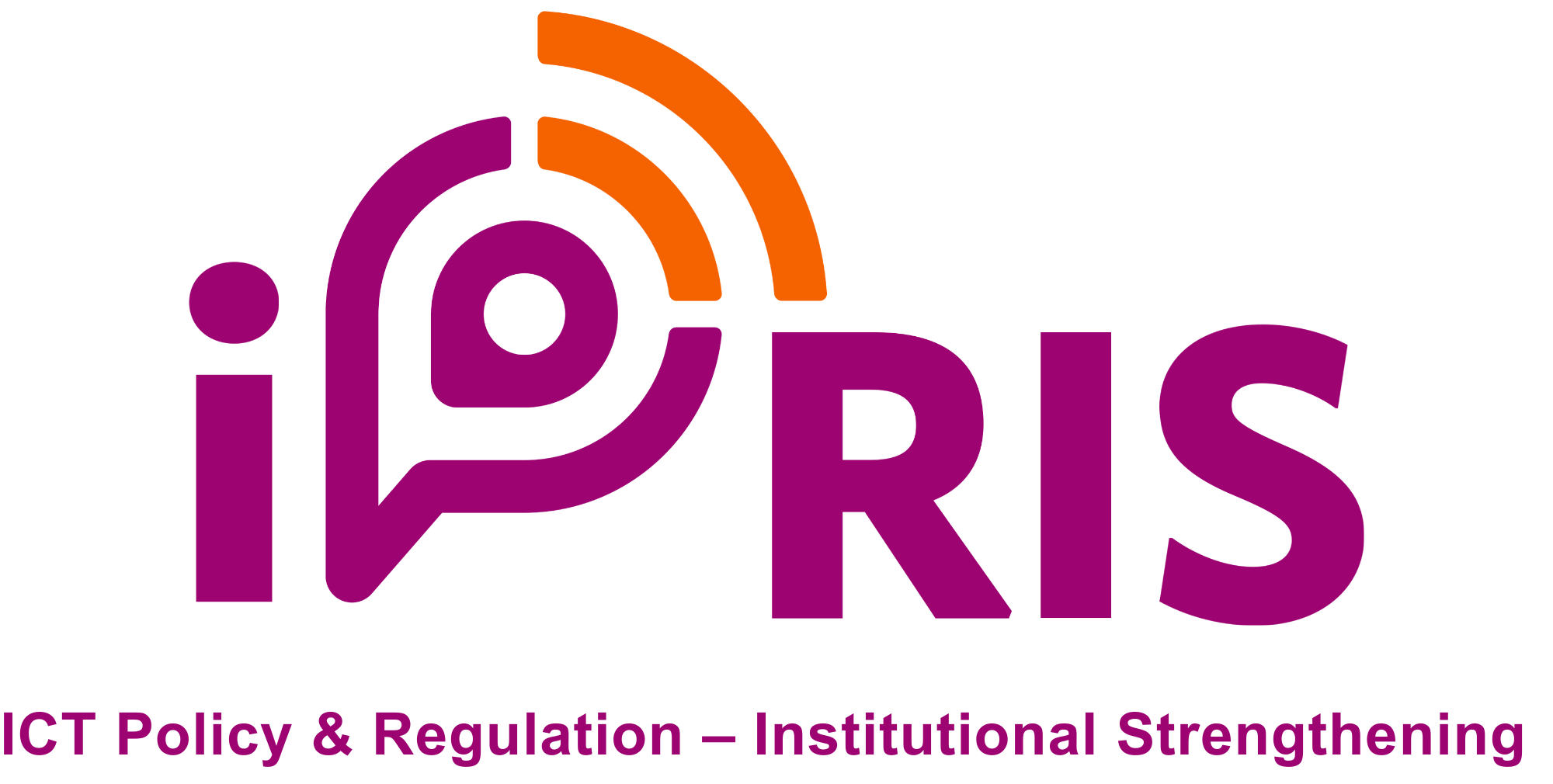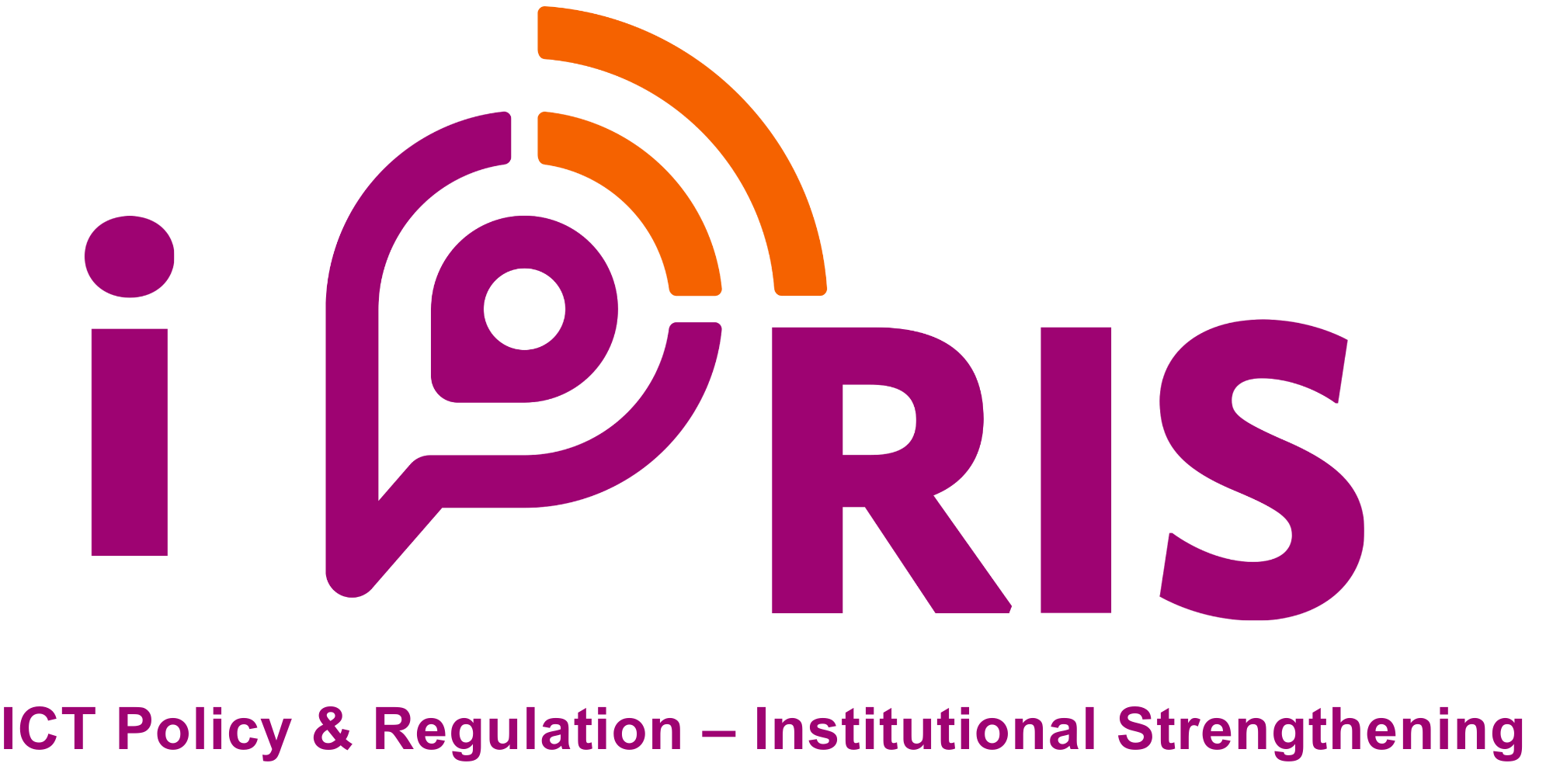The seventh iPRIS cohort began its journey in Stockholm with an intensive and collaborative first week designed to strengthen regulatory capacity, deepen understanding of the Joint European Offer (JEO), and consolidate the Change Initiatives (CIs) that will guide national institutional strengthening over the next year.
Across the week, African National Regulatory Authorities (NRAs) engaged with African and European experts on spectrum, broadband deployment, regulatory independence, evidence-based decision-making, project management, and emerging policy issues, laying the groundwork for a cycle defined by learning, practical insights, and peer-to-peer collaboration. The NRAs include National Communications Authority (NCA Ghana), Lesotho Communications Authority (LCA), Botswana Communications Regulatory Authority (BOCRA), Public Utilities Regulatory Authority (PURA The Gambia), Communications Authority (CA Kenya), and Malawi Communications Regulatory Authority (MACRA). They are joined by Regional Regulatory Organisations (RROs) - WATRA, EACO, and CRASA, who will guide them on their iPRIS journey to realise their change initiatives.
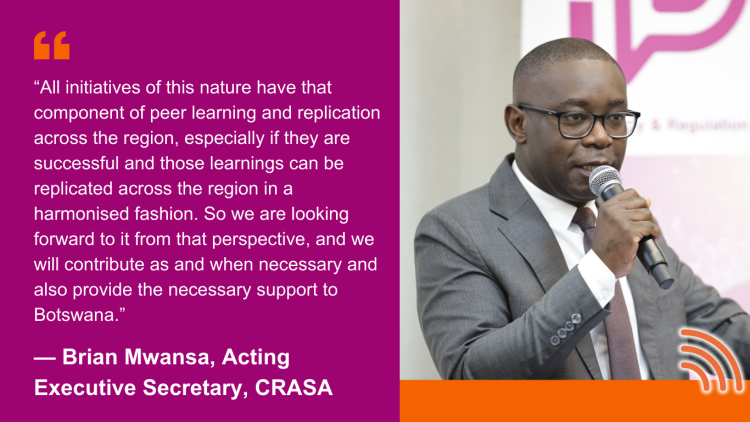
Day 1: Change initiatives take centre stage
The week opened with a dynamic series of CI presentations from NRAs across Africa. The various countries presented their CIs relevant to nations, with discussions ranging from spectrum roadmaps to AI policy readiness, consumer protection, community networks, and satellite regulation. A complete spectrum roadmap for 2025-2035 that would bring together scattered policies and improve future-readiness was presented by Edem Debrah of Ghana. Kenya discussed its plan to help community networks reach marginalised areas, with Thomas Luti highlighting, “community networks… are for the people, run by the communities for their own benefit.” Lesotho highlighted the need to regulate AI and emerging technologies, with Alex Maama stating, “The LCA will… proactively work on the required policy to regulate emerging technologies for the good of the country effectively.”
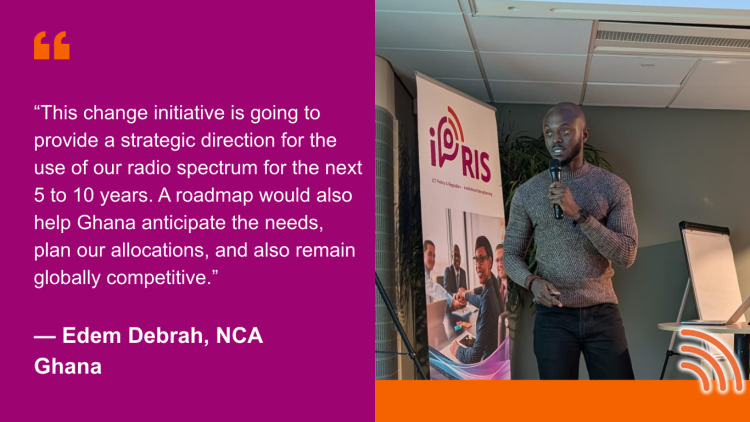
Malawi, The Gambia, and Botswana regulators also shared CIs on spectrum initiatives related to quality of service enforcement, spectrum management, Public Key Infrastructure (PKI), and satellite services regulation. SPIDER’s Edna Soomre grounded the day’s work with a reminder of the programme’s purpose: “We want to drive you to the results of your change initiatives. You have the answers because you know the context.”
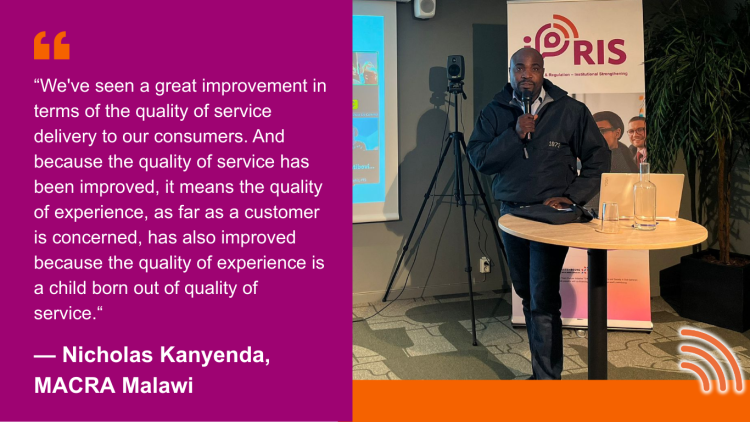
Day 2: Understanding regulatory evolution and the European model
Tuesday’s sessions provided a deep dive into regulatory models, project structures, and the legal foundations of independence and cooperation in Europe. Alexandra Högberg opened with a project management masterclass on intentional design, reminding participants: “Clarity of purpose is what keeps a project anchored when everything around it shifts.” Lars Gustafsson charted Sweden’s evolution from a monopoly environment to a competitive, high-performing telecom market. His session showed how regulatory frameworks must evolve in tandem with market dynamics, spectrum demands and technological change.
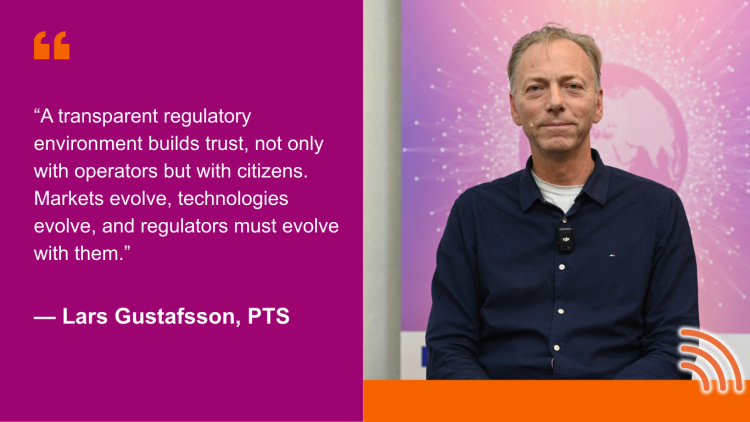
Per Andersson unpacked the legal foundations of the Joint European Offer, explaining Sweden’s constitutional separation between ministries and NRAs. His discussion illustrated why independence, transparency and legal certainty are necessary safeguards for credible regulatory practice. Building on this, Antonia Wopenka introduced the European Electronic Communications Code and emerging EU instruments, including the Gigabit Infrastructure Act and AI regulation. She highlighted how harmonised rules and regional cooperation equip regulators to navigate cross-border markets and fast-moving technologies.
These sessions clarified how legal certainty, transparency, resourcing, and institutional design underpin effective regulation, offering lessons for African NRAs working to strengthen their own frameworks.
Day 3: Broadband planning, data, and evidence-based regulation
Wednesday’s programme focused on the technical backbone of digital transformation: broadband deployment, mapping, and secure communications. Andreas Wigren opened with a look at Sweden’s broadband journey, demonstrating how clear targets and coordinated investment can drive long-term digital infrastructure. “State support works best when it complements the market, not replaces it,” he explained. Jens Ingman followed with a practical session on broadband mapping, stressing the centrality of reliable data: “Good mapping is the basis for good decisions. Without accurate data, you can neither plan nor regulate effectively.”
African regulators contributed national perspectives, from Ghana’s challenges with commercial viability to Malawi’s interest in demand-prediction tools, highlighting shared challenges and opportunities. An afternoon visit to the PTS headquarters introduced participants to Sweden’s secure communications frameworks, complemented by an evening reception that strengthened cross-continental professional bonds. The secure communications session was delivered by Per Erik Vitasp, Gustav Söderlind, and Joakim Aspengren, providing insight into Sweden’s approach to network resilience, emergency communications, and institutional coordination.
Day 4: End-User Protection, Digital Inclusion and Numbering Systems
Thursday brought the focus to the user-facing side of regulation, ensuring that digital markets are fair, inclusive and accessible. The morning opened with Lisa Gurner, who introduced Europe’s regulatory approach to end-user protection. She explained how transparency rules, switching procedures and preventive supervision support markets where users can clearly understand their rights and make informed choices. Her session also highlighted PTS’ collaboration with the Swedish Consumer Agency and the mechanisms used to protect vulnerable groups. She was followed by Hans von Axelson, who explored digital inclusion and the practical ways accessibility is embedded into Sweden’s regulatory and service frameworks. By walking participants through procurement requirements, relay and interpretation services and real-time text systems, he demonstrated how inclusive design ensures that persons with disabilities can communicate on equal terms.
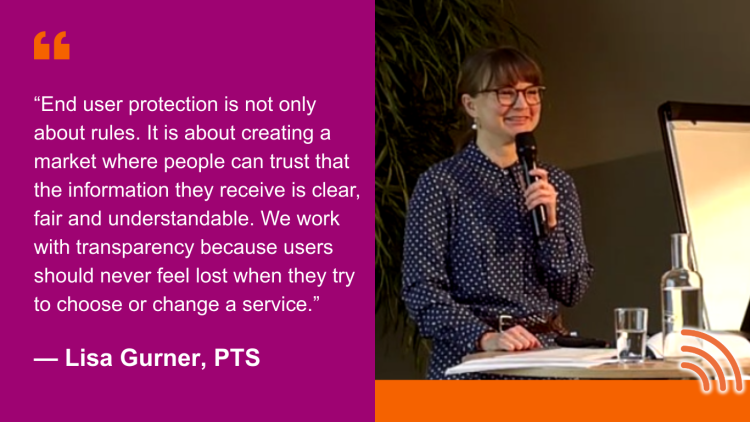
In the afternoon, Claes Hultholm and Jesper Simons provided a detailed look at Sweden’s numbering and addressing systems. They explained how national numbering plans are structured, how PTS allocates and supervises resources and why reclaiming unused numbers is essential for long-term sustainability. Their discussion also covered portability, emergency call obligations and the increasing need for expanded numbering ranges as digital services grow. Contributions from African NRAs highlighted parallels with challenges back home, including number shortages, fraud prevention and the need for more transparent allocation systems. The sessions demonstrated how user protections, digital accessibility and numbering frameworks collectively shape secure, inclusive and well-functioning communications markets.
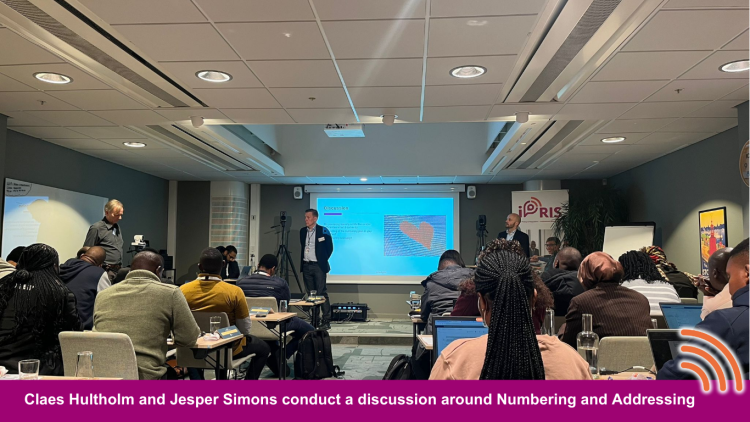
Day 5: Future regulatory issues, spectrum, and project management
The week will conclude with a forward-looking agenda curated by PTS and SPIDER, focusing on future regulatory trends, spectrum management, and advanced project management. Bo Andersson will open the day by exploring how markets, technologies, and regulatory frameworks are evolving simultaneously. Amela Hatibovic, Gustav Lenninger, and Fredrik Johansson will lead Spectrum Management. This session aims to equip NRAs with practical insights into European spectrum allocation models.
SPIDER’s Alexandra Högberg & Malena Liedholm Ndounou will also deliver a hands-on workshop to refine the cohort’s Change Initiatives, ensuring they are realistically scoped, linked to impact pathways, and supported by strong indicators. The day will close with a cohort evaluation and a cultural visit to Stockholm’s Royal Palace, an opportunity to reflect on learning, celebrate progress, and strengthen relationships before Week 2.
A strong start to a transformative cycle
Week 1 set a powerful foundation for the Seventh iPRIS Cohort, combining peer learning, European regulatory insights, and the practical shaping of Change Initiatives that respond directly to national needs. The balanced mix of technical sessions, legal frameworks, project management guidance, and cross-continental collaboration reflects iPRIS’s core mission: strengthening regulatory institutions and accelerating Africa’s digital transformation. As this cycle continues into Weeks 2 and 3, the cohort carries forward a shared commitment to building inclusive, secure, resilient digital ecosystems across the continent.
iPRIS is coordinated and implemented by SPIDER in strategic and technical partnership with the Swedish Post and Telecom Authority (PTS) and Institut luxembourgeois de régulation (ILR), as well as ARTAC, CRASA, EACO, and WATRA.
iPRIS is funded by the European Union, Sweden, and Luxembourg as part of the Team Europe Initiative “D4D for Digital Economy and Society in Sub-Saharan Africa” (Code: 001).
